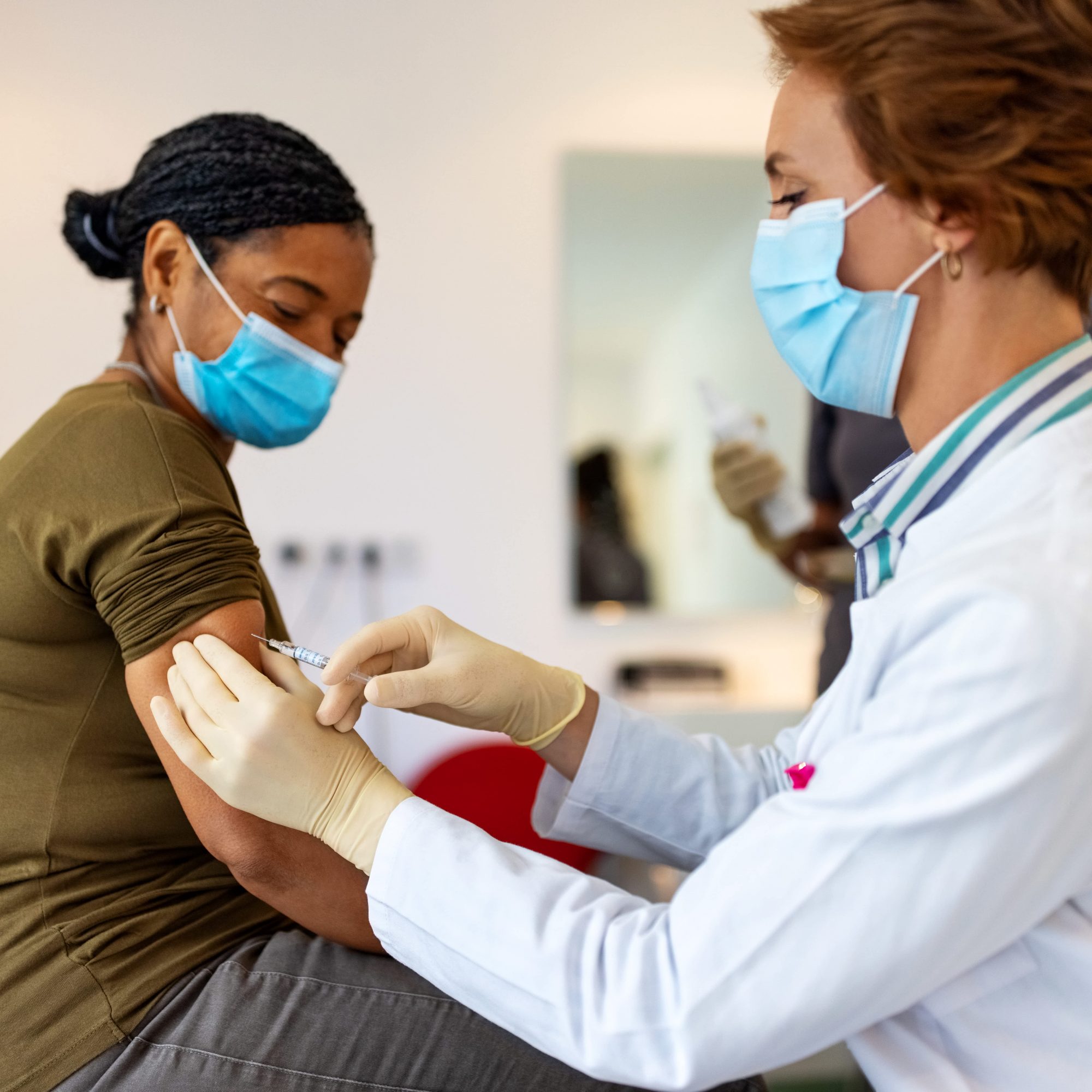
- POPSUGAR Australia
- Fitness
- To Be Safe, This Doctor Says to Avoid Working Out Right After the COVID-19 Vaccine
To Be Safe, This Doctor Says to Avoid Working Out Right After the COVID-19 Vaccine

While the Centers for Disease Control and Prevention suggests moving your arm to help mitigate soreness after you receive a dose of the COVID-19 vaccine, one doctor we spoke to suggests avoiding exercise out of an abundance of caution for at least a day post-shot. Purvi Parikh, MD, an immunologist and allergist with Allergy & Asthma Network, told POPSUGAR that working out before getting a COVID-19 vaccine would generally be fine, but exercise after the fact might exacerbate any sort of adverse reaction.
Can I Work Out After the COVID-19 Vaccine?
First, it’s important to state that severe allergic reactions to the COVID-19 vaccine are rare – between Dec. 14 and Dec. 23, 2020, out of a reported 1,893,360 first doses of the Pfizer-BioNTech COVID-19 shot, the CDC documented 4,393 (0.2 percent) adverse events, of which 21 were concluded as anaphylaxis. Dr. Parikh, who also is a co-investigator on COVID-19 vaccine trials at NYU, noted that researchers think such allergic reactions may be caused by polyethylene glycol, or PEG (this one reason why the CDC advises people with an allergy to PEG or the closely-related polysorbate not get the current mRNA COVID-19 vaccines).
Anaphylaxis, Dr. Parikh noted, will typically happen within 30 to 60 minutes after receiving the COVID-19 vaccine. Side effects such as injection site pain or redness, fever, fatigue, muscle and joint pain, as well as swollen lymph nodes are reported for the COVID-19 vaccines available in the US (there’s also a harmless arm rash from the Moderna vaccine specifically). The most common side effects, though, typically last up to 48 hours – and no more than a few days – and are worse after the second dose.
Dr. Parikh suggests not working out for at least a day, or until any side effects subside, because exercise increases your blood flow and heart rate and, thus, can increase inflammation in the body. This is the same reason why she said to avoid alcohol at least a day after getting the vaccine.
“Exercise should be avoided after the vaccine and can resume when feeling back to normal the next day or day after,” Dr. Parikh stated, adding that this is more so the case for the second dose of the mRNA vaccines since that dose is supposed to result in an increased occurrence of short-term side effects. Additionally, if you do experience side effects from the vaccine, she said it might be best to avoid exercise simply due to the fact that you could be putting more stress on your body (so, listen to how you’re feeling).
“The next day, if you’re feeling well, you can go back to your exercise routine,” she said. If you do wish to exercise once you’ve gotten your vaccine, Dr. Parikh suggested sticking to low-impact and low-intensity workouts.
As always, contact your doctor regarding any side effects you may be concerned about, but Dr. Parikh explained that indications of a more severe response to the vaccine would include such symptoms as lightheadedness, difficulty breathing, and vomiting. Those are the symptoms that she would say warrants a call to your doctor, but if more mild side effects to the COVID-19 shot persist and do not show signs of relenting, she suggests also contacting your healthcare provider then.
POPSUGAR aims to give you the most accurate and up-to-date information about the coronavirus, but details and recommendations about this pandemic may have changed since publication. For the latest information on COVID-19, please check out resources from the WHO, CDC, and local public health departments.


